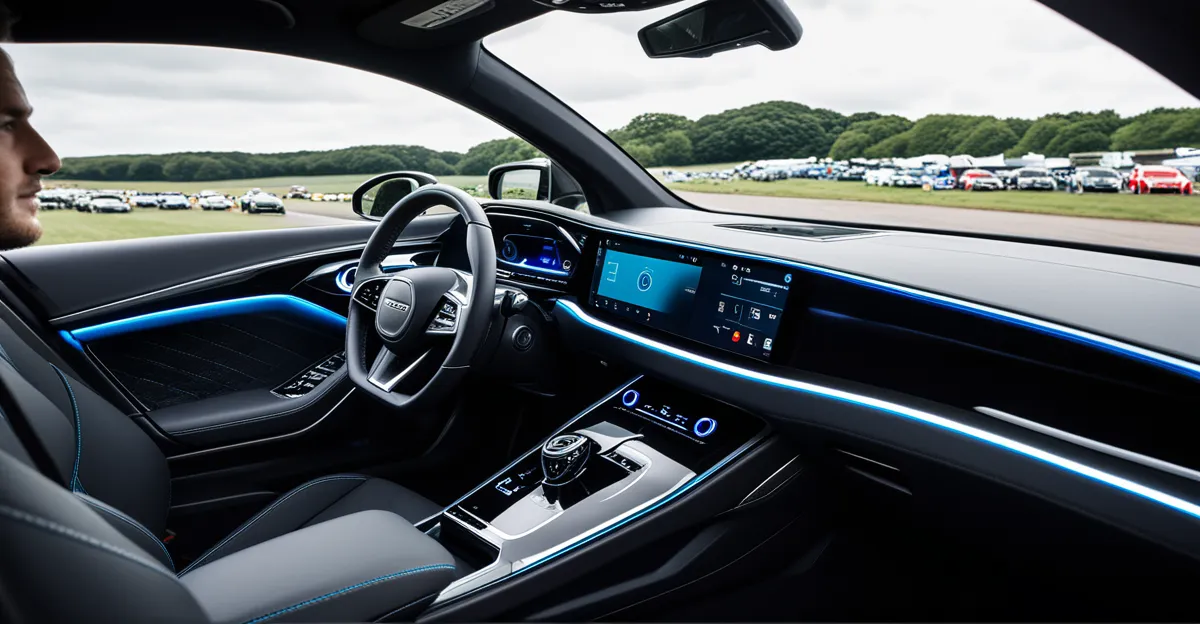Impact of Emerging Technologies on UK Automotive Innovation
Emerging automotive technologies are reshaping the UK automotive industry trends significantly. At the forefront, innovations such as electrification, autonomous systems, and smart manufacturing are accelerating transformation across design, production, and user experience. This momentum positions the UK well for global competitiveness.
The current innovation landscape in the UK automotive sector focuses on integrating advanced technologies like electric vehicles UK development, AI-driven production enhancements, and enhanced connectivity features. Each technology contributes uniquely to efficiency, sustainability, and market appeal.
Also read : How Will the Electric Vehicle Industry Transform Urban Mobility in the UK?
For example, advancements in battery innovation improve electric vehicle ranges, crucial to meeting government adoption targets. Simultaneously, intelligent automation elevates manufacturing precision while reducing costs. Together, these innovations bolster the UK’s strategic importance by aligning with global demands for greener, smarter mobility solutions.
This technological surge also fosters new collaborations among automakers, tech companies, and research institutions. However, harnessing these emerging automotive technologies requires addressing challenges such as infrastructure readiness and workforce upskilling. Nonetheless, the UK automotive innovation scene demonstrates strong potential to drive economic growth and set global standards, reflecting evolving automotive innovation UK trends with resilience and foresight.
Also read : How Does Brexit Impact the UK’s Automotive Industry?
Artificial Intelligence and Machine Learning in Design and Manufacturing
The integration of AI in automotive design is revolutionizing how UK manufacturers develop vehicles. Machine learning automotive applications enable rapid prototyping and optimization by analyzing vast data sets on aerodynamics, materials, and safety. This significantly shortens design cycles, allowing for more innovative models aligned with automotive innovation UK priorities.
In production, smart manufacturing UK cars uses AI to enhance quality control through predictive maintenance and real-time defect detection. Automated systems powered by machine learning reduce downtime and improve efficiency while cutting costs. Leading UK manufacturers leverage these technologies not merely as tools but as strategic advantages fostering agility in a competitive market.
A notable example includes the use of AI-driven robots that adapt to changing assembly line conditions without human intervention, streamlining operations and reducing errors. These advances reflect broader UK automotive industry trends towards digitization and factory modernization.
By combining AI with sensor technology and data analytics, the UK automotive sector strengthens its manufacturing base, improving output quality and sustainability. This synergy positions the industry favorably against global competitors striving for smart, flexible, and efficient production systems.
Advancements in Electric Vehicles and Battery Technology
Emerging automotive technologies are pivotal in propelling electric vehicles UK forward. Electrification growth in the UK is propelled by government targets aiming for widespread EV adoption to reduce carbon emissions. This demand drives significant battery innovation by UK firms focused on increasing energy density, charging speed, and battery lifespan. For example, researchers are developing solid-state batteries designed to enhance safety and range while reducing weight.
Battery technology improvements enable UK manufacturers to produce EVs more competitive in range and cost. This progress supports the broader EV infrastructure UK expansion, which remains vital to sustaining market growth. Public and private sectors are collaborating to widen charging networks nationwide, including fast chargers along key routes, addressing the challenge of “range anxiety” faced by EV users.
Despite advancements, the rapid scaling of EV infrastructure requires overcoming hurdles such as grid capacity and installation costs. However, these efforts align clearly with UK automotive industry trends emphasizing sustainability and innovation. Consequently, these advancements reinforce automotive innovation UK, ensuring that electric mobility becomes an accessible, practical solution for consumers and a strategic driver of industry evolution.
Autonomous and Connected Vehicle Developments
Autonomous driving UK initiatives are advancing rapidly, positioning the country as a key player in self-driving technology. Pilot projects across urban and highway settings test autonomous driving UK capabilities, focusing on safety, navigation, and regulatory compliance. These trials help refine sensor integration, machine perception, and decision-making algorithms essential for reliable autonomy.
Connected vehicles are transforming mobility by enabling real-time data exchange between cars, infrastructure, and cloud services. The rise of connected vehicles in the UK leverages 5G networks to enhance communication speed and reliability, critical for features such as traffic management, hazard alerts, and vehicle-to-everything (V2X) interactions.
Together, autonomous driving UK and connected vehicle technologies underpin a new mobility ecosystem promoting efficiency, safety, and convenience. These innovations also align with broader mobility innovation goals to reduce congestion and emissions through smarter transport solutions.
The strategic focus on these technologies strengthens the UK’s competitiveness, attracting industry partnerships and investments. Still, challenges remain in urban infrastructure adaptation, cybersecurity, and legislative frameworks needed to support widespread deployment of autonomous and connected vehicles. Addressing these will be pivotal for the sustained growth of mobility innovation within the UK automotive industry trends.
Sustainability and Environmental Impact
Emerging automotive technologies play a crucial role in advancing sustainable automotive innovation within the UK. Innovations in green mobility UK focus on reducing carbon emissions through cleaner powertrains and efficient energy management. For instance, electrification not only cuts tailpipe emissions but also integrates with renewable energy sources, amplifying environmental benefits.
Lifecycle sustainability extends beyond vehicle operation. UK manufacturers increasingly adopt circular economy principles, emphasizing recycling materials and minimizing waste in production. This approach aligns with ecological automotive trends targeting resource efficiency and reduced environmental footprints. Advanced materials and design-for-reuse strategies contribute to longer vehicle lifespans and easier end-of-life processing.
Real-world outcomes showcase UK industry leaders implementing these principles. Companies pioneering automotive innovation UK investments achieve measurable emission reductions while maintaining competitiveness. The push toward zero-emission zones and government-backed sustainability initiatives further incentivizes green technology development.
Collectively, these efforts reflect a comprehensive approach to environmental responsibility, integrating technology with policy and market demands. As UK automotive industry trends evolve, sustainability emerges as both a challenge and an opportunity, essential for securing a resilient and climate-friendly automotive sector.







